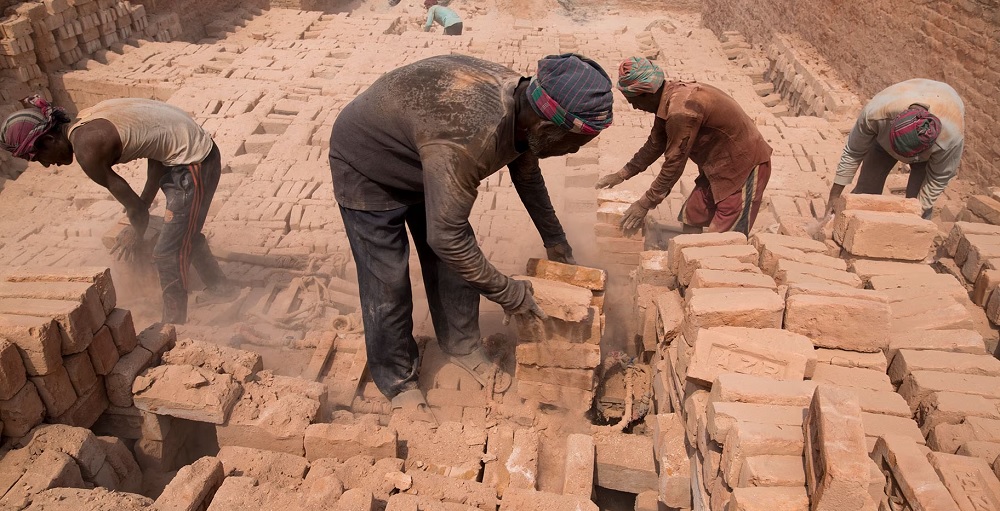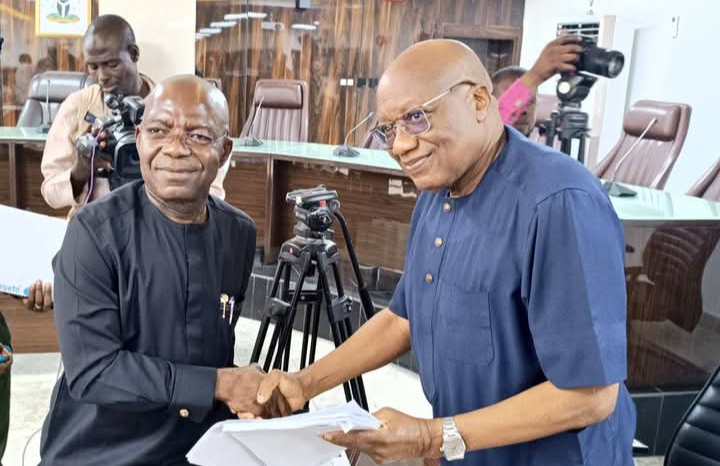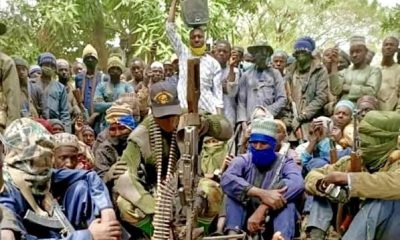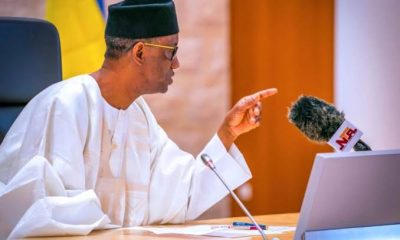News
Nigeria should not be importing food – Edun

By Francesca Hangeior.
Nigeria is set to drastically reduce its dependence on food imports, according to the Minister of Finance and Coordinating Minister of the Economy, Wale Edun, who outlined a bold strategy to boost domestic agricultural production and increase food security.
Edun, who spoke at a press conference in Abuja on Thursday to mark the country’s 64th Independence Day declared that the era of heavy food importation must end, positioning this shift as a cornerstone of the government’s economic recovery plan.
“We should not be importing food,” Edun stated, stressing that Nigeria’s future lies in self-sufficiency.
The government, he said, was committed to supporting small-scale farmers by providing critical inputs like seeds and fertilizer under schemes such as the Nigerian Agricultural Growth Scheme.
The support will focus on enhancing both the wet and dry season harvests, reducing the need for imports in the short term while boosting productivity in the long term.
As an immediate measure, the government has ordered maize and wheat imports to stabilise the food market.
However, Edun stressed the importance of balancing this with domestic production.
“It is critical that we do not disrupt domestic production of food. It is critical that we do not disrupt farming in Nigeria by flooding the market with imports,” he warned.
As Edun made clear, the shift from food imports is not just an economic necessity but a critical step toward Nigeria’s future self-sufficiency.
“This is not where we should be,” he said of the country’s reliance on imported food. The new strategy, he argued, will put Nigeria on the path to economic independence and food security.
Edun’s remarks came as Nigeria grapples with rising food prices and a struggling agricultural sector that produces significantly lower yields than global standards.
The government’s long-term goal is to more than double agricultural productivity through improved local seedlings and better farming practices.
The drive to boost agriculture forms a key part of a broader economic overhaul, as the country also navigates the impact of the recent removal of fuel subsidies.
News
10 countries where slavery still exists

Despite the fact that slavery is illegal in most parts of the world, modern slavery is still a major trend in some countries due to various reasons like weak laws, corruption and even unwillingness of the security agencies to execute their jobs right.
These inhumane acts of modern slavery happen in various ways, such as forced labor, human trafficking, forced marriage, debt bondage and child slavery.
There has been a move to eradicate modern slavery by 2030 all over the world by the International Labour Organization.
These are 10 countries that slavery or modern slavery practices are still reported to be a significant issue according to ‘Global Slavery Index’:
India
India is a country with diverse cultures unique to the indigenous people of India some of these cultures support forced marriages and often leads to the law turning a blind eye. India is the nation with the highest number of modern slaves in the world. These acts of slavery occur through forced marriages, bonded labour due to the high rate of poverty and also child trafficking.
China
China is known as an industrious country and the use of exploitative job opportunities for migrants is not scarce. China also has the issue of forced labour, woman and children trafficking for sexual exploitation.
North Korea
North Korea has the highest percentage of enslaved people relative to it population with 2,696,000 slaves and approximately 26 million people as at 2024. North Korea practices compulsory military service, and state-imposed slave labour ranking third on the list.
Pakistan
Pakistan’s major issue is the outbreak of bonded labour. People are forced to pay off small loans through hard labour for a prolonged period of time. Poor families in Pakistan are often unable to pay back debts and this leads to women being forced into prostitution while children are used as domestic workers or beggars.
Russia
The use of Asian migrants for forced labour is a major issue in Russia and this has resulted in the skyrocketing of forced labour in Russia. Migrants could sometimes lose their passports to Russian officials to prevent them from escaping.
Indonesia
Indonesia battles with a high rate of child labour. Farming and fishing are the two major areas that are of high demand for child and forced labour.
Nigeria
Forced marriages is not uncommon in Nigeria, same applies to human trafficking and child labour. Women and children are trafficked out of the country to become sex workers.
Turkey
Turkey has the issue of child labour, sexual exploitation and even migrant worker exploitation. The nation is a hotspot for refugee migrants who could fall into the hands of predators looking to exploit them
Bangladesh
The garment industry in Bangladesh is a major source of revenue and the rigorous nature of production entails workers and sometimes children toiling for hours in sweatshops
United States
The United States has a major issue with human trafficking, Migrant workers exploitation and even sex trafficking, migrants especially those without legal status, are often exploited in the agricultural and construction sectors.
News
SAD! APC lawmaker dies while asleep

The lawmaker representing Kaura Namoda South Constituency in the Zamfara State House of Assembly, Aminu Ibrahim Kasuwar-Daji, has died.
It was gathered that the lawmaker passed on in his sleep during the early hours of Wednesday.
Aminu Ibrahim Kasuwar-Daji’s sudden death came as a shock to many in the state, especially his colleagues and political associates.
The All Progressives Congress (APC) in Zamfara, the party under which he was elected, expressed deep sorrow over his passage.
Members of the party, including the State Working Committee and other supporters, described his death as a great loss.
They said he was known for his dedication and honesty in serving his people.
His family, community members in Kaura Namoda South, and fellow lawmakers have been thrown into mourning as preparations for his burial began.
According to Islamic rites, he was buried today at 3:00 pm in his hometown of Kasuwar-Daji, located in the Kaura Namoda Local Government Area.
Many in the state have continued to express grief as they remember the role he played in representing the people and contributing to the work of the state assembly.
News
Just in: Sam Olumekun takes over as INEC’s Acting Chairman

Mr. Sam Olumekun has taken over at the Independent National Electoral Commission (INEC) as Acting Chairman.
Olumekun is INEC’s National Commissioner in charge of Information and Voter Education.
He performed his first duties today, receiving a high-level delegation of the Labour Party (LP) at the Commission’s headquarters in Abuja with other National Commissioners in attendance.
The delegation was led by Abia State Governor Dr. Alex Otti, who visited the Commission to discuss key developments within the Labour Party.
It was gathered that both parties engaged in discussions centered on enhancing collaboration and reinforcing democratic values.
During the visit, Governor Otti formally presented a Certified True Copy of the recent Supreme Court judgment concerning the party’s leadership.
He noted that the meeting was aimed at fostering clarity, mutual understanding, and institutional alignment regarding the Labour Party’s current structure.
Mr. Olumekun, the Acting INEC Chairman, reaffirmed the Commission’s unwavering commitment to neutrality, transparency, and the rule of law in the discharge of its constitutional responsibilities.
Recall that a viral WhatsApp message had indicated that Prof. Mahmood was sacked by President Bola Tinubu and replaced with one Prof. Bashiru Olamilekan.
“INEC Chairman Prof. Mahmud Yakubu has been replaced with Prof. Bashiru Olamilekan by President Tinubu,” the message, which had no attribution, read. However, both INEC and the Presidency debunked the widespread report.
Yakubu, who is rounding off his second tenure in office, is expected to exit the system towards the end of this year.
The process of appointing an INEC chairman is the President nominating a candidate and forwarding his particulars to the Department of State Services (DSS) for profiling.
After such screening, the President, thereafter, takes the name to the National Council of State for its advisory review.
Based on the outcome, the President sends the name to the Senate for screening and confirmation.
-

 News16 hours ago
News16 hours agoBanditry:” I was chained for 32days while in their den, killed my wife as I watch-Nat’l Assembly DD narrates experience
-

 News11 hours ago
News11 hours agoPolice Inspector Slumps, Dies While Celebrating After Arsenal Wallop Real Madrid 3-0
-

 News17 hours ago
News17 hours agoUS revokes more than 500 foreign student visas
-

 News23 hours ago
News23 hours agoBandits have seized control of 64 communities in Plateau – Gov Muftwang
-

 News18 hours ago
News18 hours agoIbas picks administrators for 23 Rivers LGs(SEE list)
-

 Economy23 hours ago
Economy23 hours agoMobile Money transactions hit $1.68trn in one year
-

 News10 hours ago
News10 hours agoSAD! APC lawmaker dies while asleep
-

 News24 hours ago
News24 hours agoRibadu warns against ransom payment to terrorists, kidnappers, others

















